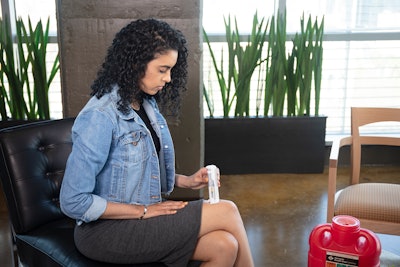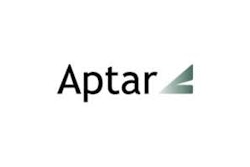Recently Noble, an Aptar Pharma company commissioned a study, "The current paradigm for biologic initiation: a confirmatory quantitative analysis of self-injection training practices," where 277 healthcare providers (HCPs) and 264 patients currently self-injecting biologics were surveyed to identify gaps in self-injection training and onboarding practices.
“The results of the study showed that patients who have to self-administer are receiving some training but it’s the quality and type of training that is still lacking or underperforming,” notes a release from Noble. Key findings from the study include:
- Most patients (91.7%) reported receiving formal self-injection training, commonly conducted over one or two sessions.
- The mean overall training time reported was 37.8 and 30.4 minutes by patients and HCPs, respectively, with only a portion of that time focused on the injection steps themselves.
- Over one-third of patients reported lacking confidence that they could correctly self-inject during the first six months of treatment. As a result, many patients experience heightened anxiety, and the emotional burden is posing a negative impact on adherence to their treatment regimen and diminishing positive outcomes.
In addition, the study reflects how critical patient training and onboarding are for injectable therapies. In the following Q&A, Tim McLeroy, executive director of marketing & patient services at Noble, discusses the study findings and patient onboarding training for self-administration.
Healthcare Packaging (HCP): While understandable, the percentage of patients that lack confidence is certainly cause for concern. Tell us a little bit about the study results—were the education gaps that they found in the study what you expected?
Tim McLeroy (TM): Yes and no. What we see is there's always a disconnect between when a doctor communicates something and what a patient receives. There's more duress on the side of the patient than there is on the physician.
Especially for a chronic medication being prescribed for the first time, there are typically three things going through the patient’s head. The first one is usually “how am I gonna pay for it?” The second one is about side effects, with concerns about whether the cure is worse than the disease. Last is, if it’s going to be a type of injection, how am I going to give myself a shot? We've seen that around 30 to 40% of the people in the U.S. have some type of needle phobia. So it absolutely doesn't surprise me.
But it's still not being fully mitigated by the physician. Even if the physician has the best information, the best training, the best bedside manner… how much do you retain as a patient by the time you hit your car in the parking lot? This is not to sound flippant—there was a lot that just went on for that patient. This is what we call training decay, and we know that within a couple of days, potentially 90% of the information that the HCP just gave them can be lost. That’s why it's always good to have a caregiver or loved one with you during the visits, but that's not always possible.
HCP: What stuck out to you most about the study?
TM: While it’s unfortunate that not a lot was completely surprising, one of the stats that jumped out was that within that first six months, 90% of the patients had some type of challenge or a negative issue.
Without being able to delve into the issues, in my experience, a majority of the challenges will happen in that first month of therapy. As we dug into the stats for another product I worked on, we saw that 80% of the patients had an error in the first month of self-administration.
This may sound funny, but it's the reality—I always ask people if they’ve ever had a bad first date. Most people raise their hand. You can have a bad first date, and it doesn't mean there’s zero chance for the second date, but the odds have gone down significantly. It’s similar for a patient. If you have a better first experience going into a therapy or medication in that first month—if you feel comfortable and confident or at least informed—the odds of you staying on that therapy go up significantly. The inverse is true, too. If it's too challenging and you’re overwhelmed, there's a high likelihood that you're not going to continue the therapy.
HCP: In light of this study and others like it, how does Noble develop resources and training support to minimize patient burdens and achieve better outcomes?
TM: I’ll go back to one of the main things in the study—that HCPs don't have that time to train. If you can save the physician time, then that's fantastic.
What we're seeing, partly as a result of COVID, is that there are fewer healthcare workers than there used to be, between retirement or those who left due to stress. In the past, physicians would do the training at the outset or would have the patient come back and do the training once they filled their prescription. But there's so many constraints on the medical field right now that time is even more critical than it used to be (and it certainly wasn't a luxury beforehand).
At Noble, we’re looking at how we can relieve that training burden from the HCP, and there's a couple initiatives via different channels like specialty pharmacies. We want to equip other folks to standardize training in a way that’s physician-approved, but it gets out to the patient in a multi-sensory way that they can train at home—maybe with a loved one—including a tactile trainer, instructions for use, and a video that's in “patient language.” This language may not be as legalistic as what the pharma company would put out, but would have physician buy-off. We want to take that burden off the HCPs’ hands and reach out directly to the patient, and help them get educated in the right way to use their medicine. Specialty pharmacy is the direct connection to the patient, but we are starting to build programs that help specialty pharmacies be the conduit for this education.
HCP: For clinical trials processes, what is unique about onboarding/training processes, or the device/packaging itself?
TM: It's similar and I think it's even more significant in the way we're looking at packaging and putting these things together. In clinical trials, every patient is so critical. We're not saying a patient outside of clinical trial isn't important, but the importance of that trial patient getting the dose right can make the difference between a product being approved and not being approved.
Because of COVID, there are a lot more trials done at home versus a central site, what are called decentralized trials. Between packaging and instructions and the things that we put together, it’s so important to build a better patient experience for those patients in these trials.
There's already duress and stress for them—beyond an injection—just being in a clinical trial. Am I taking the placebo? Am I taking the untested medicine? Or is it the effective medicine? Is it going to hurt me or is it going to help me?
If we can at least relieve some of that stress, we can build a better first-time experience. Opening a package for the first time elicits an emotive response. If you pick something up and the packaging is cheap or it's a bad experience, you feel like whatever is inside can't be important. Or it can elicit a response that this must be important, and it makes you want to pay attention. Maybe it’s a pleasurable response similar to opening packaging for an iPhone or jewelry with heavy springs that conveys importance. The same type of emotion can be garnered from a medicine package, that it’s important but not overwhelming. This is where we want to encompass the full experience besides just giving information.
HCP: It's a tough balance to walk, especially with sustainability, at times the nicest packages and devices may not be the most sustainable.
TM: I think that's always the tension that you're trying to balance… are you overshooting your investment here or not enough. So, we’re trying to find that right balance and I think it's something we will always be questioning. What does that look like?
HCP: What are the hurdles in terms of the sheer numbers of patients self-administering? Is there a shortage of trained trainers? Does clinician burnout come into play?
TM: The biggest challenge we’re finding related to patients getting information and training is actually how it's being delivered to them. Most of the companies that produce expensive medications will have a patient service program available… but patients don't think about pharma companies when it comes to their training and treatment.
They listen to their physician, and then they get their medicine either from a pharmacy or a specialty pharmacy. If they have an issue or challenge, they're not thinking about the manufacturer of that product. We've been providing services and trainers to the pharma companies, but they have challenges getting things in the hands of the patients, either due to experience or regulatory constraints around directly accessing these patients.
That’s why we’re looking at other ways to reach patients through a different distribution channel, either direct-to-patient or through a specialty pharmacy. We want to let pharma be good at being pharma by producing good medicines, let the doctors be good at what they do by diagnosing and prescribing, and then let us find the way to bring in what's best for that patient—the right information at the right time on how to use their device. We want to become that trusted training source within the medical industry, because whether from burnout or other issues, there’s resource constraints on nurse and physician HCPs.
We’ve also found that lot of times, physicians tell patients a product is easy to use, but they've never used it. In our human factor studies, the ones that have the most issues using a medical device are often are the physicians. The patients will be scared enough that they'll read everything and double-check. The physician may be making a mistake, but they’re very confident. This is not to be flippant toward doctors, it’s just an area that they haven’t experienced in most cases.
HCP: Any other issues you’ve observed stemming from gaps in training?
TM: Related to that point, a lot of times their doctor or nurse has said, “It's easy,” giving them quick training and figuring the patient has it. The patient goes home and if they make a mistake or they're not sure of themselves, sometimes they're ashamed to bring it back up in front of the physician or give them a call because they think, “The doctor told me it would be easy, I must be stupid.” But putting metal in your body is not a default natural thing that we're born with.
We've seen a lot of times where patients will discontinue medicine, but the doctor doesn't know it. When we've asked them if they had something at home and could have practiced on it before or could go through the steps again, they say that would have been helpful.
This is a challenge that we're trying to solve and it's going to take HCPs, the pharma companies, specialty pharmacies… a range of different folks looking out for these patients. We want to highlight some of the issues that the patients aren't telling the doctors or pharmacists. We look at it as a mission, and it gets me fired up to come to work every day. We have a real opportunity—when we do our job right, a patient, caregiver, or a loved one's going to be better for it.

























